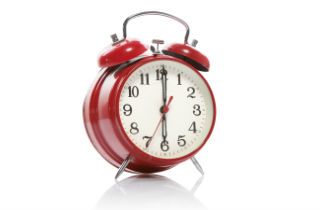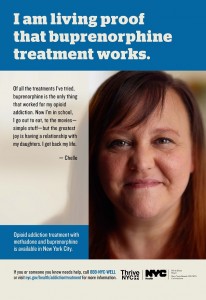ARTICLE SUMMARY: Addiction programs for heroin vary in length from 30, 60 to 90 days and more. Doctors consider early recovery as a fragile time, when people are extremely vulnerable to relapse, so a longer period spent in treatment will protect you from the pressures and temptations of the outside world. What treatment duration is right for you? And what happens during treatment in the first place? We examine these questions here.
TABLE OF CONTENTS
- Why Rehab?
- Types of Rehab
- What to Expect
- Average Length
- Duration
- Medications that Help
- Costs
- Do I Need Rehab?
- What Type to Choose
- Consequences
- Your Questions
What is Heroin Addiction Treatment?
Heroin is a an extremely addictive, opiate drug. It causes an initial rush followed by a feeling of extreme well-being. It is usually injected, but can also be snorted or smoked. The effects of heroin come on very quickly, which is one of the reasons that it is so addictive.
Quite frankly, treating a heroin addiction almost always requires rehab. The main benefits of going to an inpatient treatment center include:
- 24-7 supervision.
- A change in environment.
- Supportive network.
- Therapy.
In fact, unless you get to the deeper emotional issues that drive use…your chances of success are low. How long you stay in rehab depends on a number of factors, though, including how long you’ve used the drug and just how addicted you are. After months or years of using, developing the skills necessary for long-term recovery does not happen overnight. Recovery takes time. Not only to balance out your physical chemistry, but to get to the deeper issues around use.
Medical practice has shown that the longer a person stays in treatment, the higher the chances of recovery. Of course, the treatment length is not the only determinant of a successful treatment, but it is a huge contributing factor. In fact, according to the National Institute on Drug Abuse (NIDA) a rehab stay less than 90 days is of limited effectiveness. The more time you spend in a drug free environment and the more effort you put in treatment each day, the higher your chances are to maintain your sobriety after discharge.
Types of Rehab for Heroin Addiction
Two main types of rehab are currently available in the U.S.: inpatient and outpatient rehab programs.
Inpatient programs provide 24/7 medical care and supervision of their patients, as well as a living space. These programs may last from 1 to 6 months. The most common services include:
- Individual therapy sessions.
- Group therapy sessions.
- Health education about recovery.
- Community support.
Outpatient programs offer similar services, but do not provide 24/7 medical care since patients don’t live at the facility. Instead, patients visit the center a few hours, several days weekly. Candidates for outpatient rehabs are those with highly supportive home environments. Also, a person must be highly motivated to change to benefit from an outpatient program. Otherwise, relapse can quickly follow. For this reason, most providers suggest that heroin addiction be treated intensively, in an inpatient setting.
Stages of Heroin Rehabilitation Process
What happens in rehab? Heroin rehabilitation is a very individual experience, and no there is no one-size-fits-all approach. Most recovering addicts, however, will follow the same basic timeline, with main stages listed below.
STAGE 1: Drug Screening and Assessment
A thorough evaluation is typically the first stage of heroin rehabilitation. This usually includes a drug screening as well as a physical and mental assessment, and is used to determine the best course of treatment. You can expect the following assessments to take about 1-3 hours when you’re first enrolling into a treatment program:
- A physical exam.
- A medical history.
- A family history.
- Drug testing.
- Interview questions.
STAGE 2: Medical Detox
Withdrawal from heroin is typically very uncomfortable and may even be dangerous. To help ensure a safe and more comfortable withdrawal, medical detox from heroin is usually recommended. Detox can take from 3-7 days, or a little longer. However, most acute detoxification episodes resolve within a week of enrollment.
STAGE 3: Pharmacological Treatments
A few medications may be used to help treat heroin addiction. Two of the most common medications include methadone and buprenorphine. This medication(s) may be prescribed for 6 months, or longer. Some people stay on opiate replacement therapies for years. Each case is different.
STAGE 4: Psychological Treatments
Individual behavior therapy, group therapy, and family counseling are the most common types of treatments used during treatment. These psychological treatments help recovering addicts learn methods and techniques to resist using heroin and cope with stress without having to turn to the drug. Counseling usually lasts for at least a year during and after rehab. Some people stay in counseling for two years, or return to counseling when needed.
STAGE 5: Supportive Services & Aftercare
Addiction aftercare typically begins as soon as a person finishes a treatment program. This usually involves attendance at outpatient therapy and counseling sessions, which can last several months or years. Aftercare may also include recommendations for sober living/housing and support group facilitation. Supportive services can help recovering addicts remain drug-free by helping them with numerous problems, including emotional support, transportation, child care, and even housing.
How Long is Rehab for Heroin Treatment?
The average amount of time for heroin rehab = 28 days to 6 months.
When a person thinks of the time needed for rehab, 28 days often comes to mind. Many films and pop culture stereotypes back this up. However, this is the shortest amount of time that a recovering addict will spend in an inpatient rehab program.
Long-term treatment of 3-6 months, however, greatly increase the chances of a successful recovery. Inpatient settings can also greatly increase the chances of a successful recovery. In fact, many times it is imperative for former heroin users to get away from drugs and volatile environments that make their situations worse. This helps them focus 100% on recovery without having to worry about the temptation of drugs.
Rehab Program Duration
Duration of treatment is different for everyone. Individuals with severe addictions, for instance, will need to spend a much longer time in treatment. One factor that has a big influence on heroin rehabilitation duration, though, is the type of treatment program that an addict is in.
Short-term inpatient heroin rehabilitation = 1 to 3 months.
A short-term inpatient program typically requires a person to reside in a treatment facility for one to three months.
Long-term inpatient heroin rehabilitation = 3 months or more.
Many people in recovery from a strong drug like heroin will need to spend a much longer time in treatment, and stays in long-term rehab can range from three months to two years.
Outpatient heroin rehabilitation = 4 months to one year.
An outpatient program is usually used only after an addict has completed an inpatient program and can last from a few months to several years.
Heroin Addiction Medications
The World Health Organization supports buprenorphine and methadone as the crucial medicines for a successful treatment of heroin dependence. Moreover, a NIDA study shows that a buprenorphine/naloxone combination and an extended release naltrexone are similarly effective in treating heroin addiction. Some of the most frequently used medications for treating heroin problems include:
Antidepressants. People who undergo heroin treatment are checked for depression and other mental disorders. In this cases, SSRIs or trazodone are very helpful.
Heroin replacement medications. The widely used medications in replacement treatments are methadone and buprenorphine. These medications are easier to taper down, they delay withdrawal symptoms, and lessen cravings.
Relapse prevention medications. Naltrexone blocks the brain receptors that are enchanted by heroin. Usually, it is used in combination with methadone or buprenorphine.
Symptomatic medications. These medications treat withdrawal symptoms as they appear. Some of them include:
- Clonidine treats anxiety, agitation, sweating, runny nose, cramping, and muscle pain.
- Dicyclomine hydrochloride addresses the abdominal cramps.
- Diphenoxylate and Loperamide treat diarrhea.
- Hydroxyzine and Promethazine reduce nausea and vomiting.
- Methocarbamol prevents body pain and muscle cramps.
In particular, replacement therapy shows huge success rates. The living proof is the 43,000 New Yorkers who benefited from methadone and buprenorphine in 2017.
Average cost of Rehab
The costs of rehab depend upon direct services you receive. Keep in mind that inpatient programs are more expensive than outpatient because they provide constant medical care and a living space. The average cost of services are:
Detox: The costs for medical detox range between $6-12K.
Psychotherapy: Counseling costs from almost free to $150+ per hour.
Outpatient treatment: This rehab is charged between50-$135 per day.
Inpatient treatment: It can cost from $235-700 per day.
Medications: Methadone replacement therapy is about $6,550 per year, while the cost for buprenorphine ranges from $3,100-$6,700 per year depending from the retail formula. Naltrexone costs about $14,100 for a year.
Do I Need Rehab Programs?
If you are using heroin, the chances that you may have a substance use disorder are huge!
In fact, 23% of individuals who use heroin develop addiction.
So, get honest with yourself.
If you’re ready to turn your life around, you can start today
To verify whether you have a drug problem, check out the Diagnostic and Statistical Manual of Mental Disorders (DSM-V) that presents 11 criteria to help you diagnose an addiction:
- Take the drug in larger amounts or longer than intended.
- Want to cut down/stop using drug but fail to succeed.
- Spend a lot of time obtaining, using, or recovering from the use.
- Experience cravings and an uncontrollable need to use the drug.
- Fail to perform normally at work, home, or at school due to drug use.
- Continue to use, even when it causes problems in relationships with family, friends, and partners.
- Give up important social, occupational or recreational activities because of use.
- Use the drug again and again, despite being aware of harmful risks and side effects.
- Continue to use despite the risk of developing health problems or worsen physical or physiological condition.
- Need more drug to get the desired effect (tolerance).
- Experience withdrawal symptoms which can be relieved by taking higher dose (dependence).
If you checked some of these criteria, you may have a heroin problem. Consult with an addiction specialist to diagnose your addiction and its severity. The medical professionals who diagnose and treat addiction include:
- Licensed clinical social workers.
- Medical doctors.
- Psychologists and addiction counselors.
- Psychiatrists.
- Rehab clinics.
What Kind of Rehab Should I Choose?
So how do you know what treatment is right for you? Basically, you need some professional insight. Before starting any kind of rehab, short-term vs. long-term treatment suggestions will usually be made by an addiction specialist. The length of treatment is typically based on an addict’s wants and needs. Factors that a specialist assess will include:
- The level of heroin dependence.
- The amount of heroin you typically use and how often.
- The total amount of time you’ve been using.
- Your physical health, medical, and family histories.
- Your personal preference.
Although some people won’t necessarily want to spend a long time in treatment, they often need it. Addicts with moderate to severe addictions will typically need the intense treatment in long-term heroin rehabilitation. Short-term heroin rehabilitation, on the other hand, is usually only used to treat mild addictions and casual users who need help getting away from the drug.
—–
Recovery is not a race.
Sobriety comes with hard work and professional help.
Speak with a recovery specialist to get your help.
—–
Consequences
If you don’t seek help on time, not only you put your help at risk, but you put your life on the line. Overdose and death are common.
But you are not alone!
According to the National Survey on Drug Use and Health there were about 475,000 people aged 12 or older current heroin users in 2016, while about 626,000 people aged 12 or older had a heroin use disorder. These numbers break down by age:
- 1,000 adolescents aged 12 to 17 had a heroin use disorder.
- 152,000 young adults aged 18 to 25 in 2016 had a heroin use disorder.
- 473,000 adults aged 26 or older had a heroin use disorder.
Moreover, the DAWN report reported that heroin was responsible for 258,482 ED visits in 2011. The numbers are still rising…
The CDC backs this up showing that the ED visits for opioid overdoses rose 30% in all parts of the US from July 2016 through September 2017.
Furthermore, the Centers for Disease Control and Prevention reports that the number of OD deaths involving prescription opioids and heroin was 5 times higher in 2016 than in 1999.
Also, the CDC Report on Drugs Most Frequently Involved in Drug Overdose Deaths: United States, 2010–2014 shows these results:
- 2010: 3,020 heroin OD deaths
- 2011: 4,563 heroin OD deaths
- 2012: 6,151 heroin OD deaths
- 2013: 8,412 heroin OD deaths
- 2014: 10,863 heroin OD deaths.
If you use heroin, don’t wait until you become a number… ASK help NOW!
Time For Your Questions!
Are you or a loved one considering getting help? Please let us know how we can help. Or, give us a call on the hotline number listed on this page.
If you have any additional questions about the stages of recovery or treatment options, feel free to leave them in the comment section below. We strive to help all of our readers better understand the recovery process and start their journey toward recovery.
So, if you have an issue…reach out! You are not alone.











Related Posts